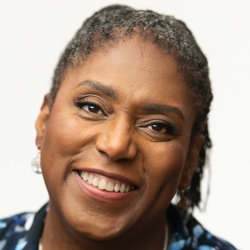
Search Results: focusing
-
- Discover how Spiral Dynamics can offer more understanding of human nature
- Learn from a Ukrainian NVC trainer and Spiral Dynamics experts
- Better grasp the evolution of human needs, values, and life conditions
- Explore how to apply NVC in situations that involve extreme violence
-
Total inclusion is impossible: inclusion of all can often lead to exclusion of those who can't bear the behaviors of some. Many groups flounder and disintegrate because of too much inclusion. Limited resources and capacities may make it necessary to exclude. Keeping more coherent shared values and strategies may be another reason to place membership conditions so that what appears to be exclusion may give movements a chance to expand.
-
Trainer Tip: Censoring oneself to maintain peace may seem easier, but it actually requires significant energy. You can free up that energy you use to deny and stuff down your feelings, needs, desires, truth, and figure out and adjust to what others want. Embracing authenticity and expressing true feelings and needs can lead to a liberating experience, unlocking joy, love, and endless possibilities.
-
Roxy Manning discusses the tendency to get attached to certain parenting strategies for control and emphasizes the importance of attuning to the child's needs rather than imposing fixed ideas of right or wrong. Using a personal example of being labeled a "bad child" for taking off uncomfortable dresses, Roxy highlights the need to observe and understand the child's perspective. She stresses the importance of moving away from rigid ideas about the perfect strategy and instead focusing on what is happening in the moment to better address both the child's and the parent's needs. Roxy encourages flexibility in parenting strategies and urges parents to check in on their motivations for seeking control.
-
When someone's in immense pain and uses words that are hard to hear, see if you can bring in as much attention and compassion as you would to someone who was cut with a sword. Focusing on what's important to them, and not so much on how it was said. This may support greater understanding and healing. Otherwise, we risk prioritizing needs, norms, and inequities of the dominant culture, over caring for people who bear the invisible brunt of such norms.
-
Join Mary Mackenzie, Certified NVC trainer, as she offers ways to incorporate NVC empathy guesses, feelings and needs into everyday conversations. This approach is geared towards adding deeper connection to the natural flow of conversations. The technique has become known as Street Giraffe.
-
Join Mary Mackenzie, Certified NVC trainer, as she offers a simple approach incorporating NVC into everyday conversations. Her observation is that sometimes speaking NVC empath guesses of feelings and needs can feel un-natural or robotic. A possible solution is to slightly shift the way a person applies their NVC skills, focusing on the flow of conversation in a modern way. This technique has become known as Street Giraffe. Her short video is packed with useful ideas that are sure to become useful tools you can add to your repritoir.
-
Shifting to a needs-based perspective is one of the most powerful—and challenging—aspects of integrating Nonviolent Communication (NVC) into daily life. In this short video, Mary Mackenzie offers three simple, practical tips to help you cultivate needs consciousness and transform how you experience your world and relationships.
-
If you’re interested in improving your relationships, advancing in your career, or enhancing your capacity for change in life in general, communication is a powerful lever. Presence, listening, bringing curiosity and care, focusing on what matters, and pausing with silence, are all key. Read on for five foundational and advanced core practices you can start using today to improve your communication.
-
-
Ask the Trainer: "I've been feeling frustrated and angry quite a bit lately over very simple things. Can you help me get to the root of my hidden needs?"
-
Bridget Belgrave, CNVC Certified Trainer from the United Kingdom, talks with an interviewer after he attends an NVC and Dance Floors workshop with her. The interviewer shares his reaction to the term "Nonviolent Communication."
-
Sylvia Haskvitz uses 20+ years of experience to introduce the core concepts of Nonviolent Communication, leaving you grounded in the basics and ready to make transformative improvements to the quality of your communication.
-
In this audio recording, Miki demonstrates how to stay in a dialogue when you don't trust someone's "yes," how to equalize power between people and how to allow space for others to say "no" to our requests.
-
Ask the Trainer: "At one point in my practice, it was brought to my attention that some people find the use of 'formal NVC' off-putting, or mechanical. Do you have any input or insight into this?"
-
The NVC Circle of Life is a mandala illustrating the process and consciousness of Nonviolent Communication. Mandala literally means "sacred circle" and symbolizes wholeness, balance and harmony.
-
I want to hear others through the lens of the meaning their actions have for them rather than through the effect their actions have on me. The very root of empathy resides in this fundamental shift. Whenever someone’s actions are at odds with our own needs, most of us, most of the time, do the latter. In that way, we keep our attention on ourselves rather than on the other person. We cannot be in empathy when we are focused on how things affect us. Miki Kashtan poignantly shares about the challenges of empathizing with another when we really don't understand their actions.
-
Join Linda Mia Mukte (formerly Rysenbry), CNVC Certified Trainer, for this uniquely powerful telecourse recording that blends NVC with Dr. Sue Johnson’s empirically validated work on adult love relationships called EFCT: Emotionally Focused Couples Therapy.
-
Trainer Tip: It is true that we cannot fully understand other people until we understand ourselves. Gain understanding and healing through self-empathy within the Compassionate Communication process.
-
Trainer Tip: In Nonviolent Communication, we consider love to be a need. Remember that needs are universal; everyone has the same ones. We all need love, but the ways in which we express it can be very different.



















